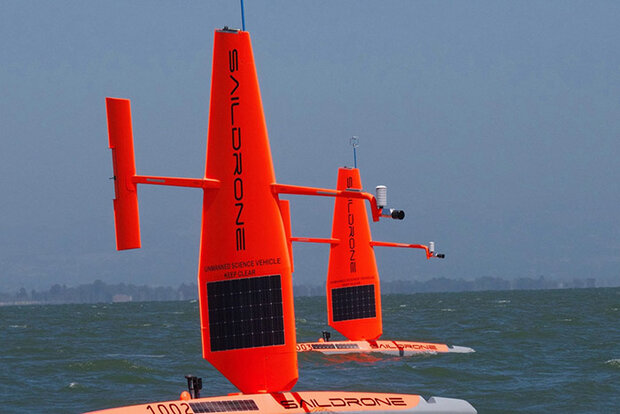Filling a data gap in the tropical Pacific to reveal daily air-sea interactions

Saildrones monitor ocean changes. Credit: NOAA
Research has long shown that ocean surface temperatures can influence the atmosphere. Over the past twenty years, researchers have been studying how the atmosphere reacts to changing ocean temperatures globally, sparking debates on the exact mechanisms at play.
Using advanced tools like uncrewed surface vehicles (USVs), moored ocean buoys, and satellite data, a new research study investigates how changes in ocean surface temperature affect our atmosphere’s stability and movement. Focusing on the eastern Pacific Ocean near the equator, this work uncovers insights into how temperature changes on a short-term daily basis impact global weather patterns.
“We focused on the diurnal cycle, or daily recurring pattern, because convective activity both in the ocean and atmosphere organize at this time scale and it is thus a basic building block of the climate system” explained Meghan Cronin, lead scientist for this work.